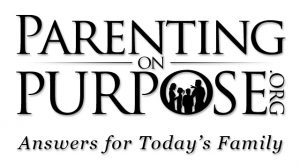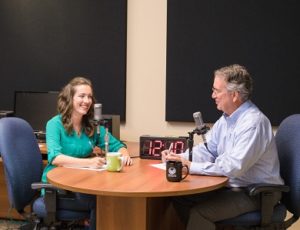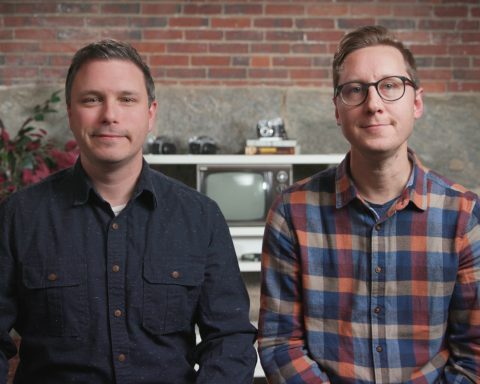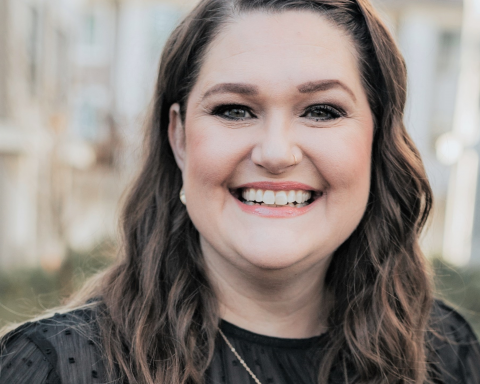When a podcast makes a great impression within the first minute of listening, it’s a good sign. I immediately fell in love with Parenting on Purpose, and knew it was different right from the start.
When I click on a podcast, I pay attention to both the content and the sound. I can’t see the person who’s speaking, so the sound has to encourage me to listen. Otherwise, I’m out. Dr. Bob Barnes is not your typical podcast host, and this show stands apart from many other podcasts.
To begin with, Dr. Barnes’ voice is awesome! It’s deep and bold, yet very comforting at the same time.
Sometimes, podcast hosts come across as self-righteous while simply airing their opinions. It’s a sad fact that some merely talk about the things they read in books without actually applying it to their lives or working on themselves by growing, learning, and pushing themselves to new levels.
In contrast, Dr. Barnes is honest, vulnerable, open, and direct. One of the first Parenting on Purpose episodes I listened to focused on Attention-Deficit Disorder (ADD). As Dr. Barnes described his childhood schooling experience, it drew me right in. Like me, he feels it is regressive rather than progressive. I was captivated instantly.
Many people think that traditional school is the best option, but is it? Many kids are diagnosed with ADD, but one has to wonder… is that the real problem, or might it be what and how they are being taught? Both the content and the traditional methods are incredibly boring to about 80% of all kids. Dr. Barnes’ discussion about how kids learn more effectively when they are allowed to learn what they want to learn how they want to learn it was completely in sync with my beliefs and what I am doing for my own kids’ purposeful education.
I also love the banter between Dr. Barnes and his daughter, Torrey Roberts.
Torrey, who manages the podcast, refers back to her time as a behavioral specialist at a residential home to explains its origins:
“Sheridan House Family Ministries started in 1968 as a residential home for teenagers with behavioral problems. Kids came in from the court system and so on, and we started to realize that the parents were the key. If we didn’t have parental involvement, the kids weren’t going to get any better. We shifted our program from a seven-day per week model to five, allowing teenagers to go home on weekends and practice what they had learned with their parents.
“The ministry expanded in the nineties as we started helping single moms. We help 200-300 single moms every year with rent and other expenses, but more importantly, we get them access to counseling services and training in skills like budgeting. We’re all about training and guiding people, not just handing out vouchers. In 2010, we decided that since my dad had written several books and spoken nationally with my mom on parenting, it was time to take our ministry to the masses to help parents and married couples.
“The show was initially produced and broadcasted through a radio station. Although we now produce it on our own, the format is still designed for radio in 15-minute segments. Two stations in Fort Lauderdale and one in Salt Lake City, Utah, broadcast it.”
Torrey admits that her professional background helped to somewhat prepare her for parenting, but now that she and her husband have two sons, she doesn’t believe there is any such thing as a parenting “expert.”
However, her parents seem to come pretty close. Bob and Rosemary have been married since 1972. Parents of Torrey and Robey, they have presented seminars and conferences on parenting and marriage. They have also authored 10 books, which have been published in several languages, and Dr. Barnes holds a doctorate in counseling.
Their guidance is needed now more than ever. Torrey recalls that when her father started his ministry, people had much more of a support system. Now, parents seem to be much more on their own, including single moms who are balancing a great deal. Torrey adds, “Today’s parents have so much information thrown at them. We hear about various parenting styles, and they are polar extremes. The influx of information can be overwhelming.
“It also seems to me that children are dealing with so much more. They have a lot more anxiety and tons of pressure on them. With social media, nothing ever shuts off, and they don’t get an escape. I struggled in middle school with some bullying, but I could turn that off when I was home at night. If kids deal with bullying now, because of social media, it’s always there.”
The modern-day challenges Torrey highlights underscore the reason I think it is important to have a team like Dr. Barnes’ behind a podcast on a critical subject like parenting.
On this podcast, no one is advising you to adopt a specific parenting style based on conditioning from their parents. As parents, it is important to examine whether we need to make changes. Unfortunately, most parents who had issues in their childhood are raising kids the same way they were raised, thereby continuing the cycle and shaping the types of parents their kids will be in the future.
Dr. Barnes and Torrey go above and beyond to help parents move past “parenting by default”—repeating what they were taught. The idea is that if you’re purposeful about changing the way you parent in your household, the change will last for generations.
My parents did a great job in some ways, and not so great in other areas, but the big takeaway is that they did everything they thought they should be doing. It didn’t all work for me, though, just like it’s not all going to work for every kid, so being fluid, flexible, and purposeful is key.
Dr. Barnes and his daughter are innovating and evolving how we parent because they care deeply about making a difference in the lives of parents and their kids. I really respect that, and I truly enjoy listening to their perspectives. Every parent will benefit from listening to their practical advice.
November 2020 Issue













Great Article! Thank you for sharing this is a very informative post, and looking forward to the latest one.